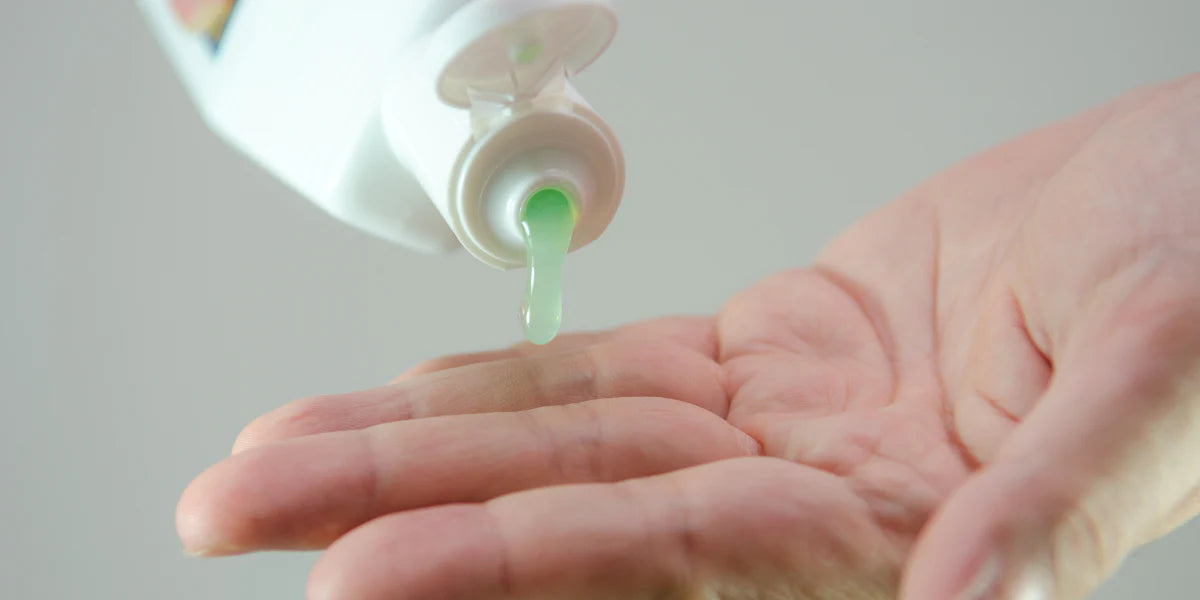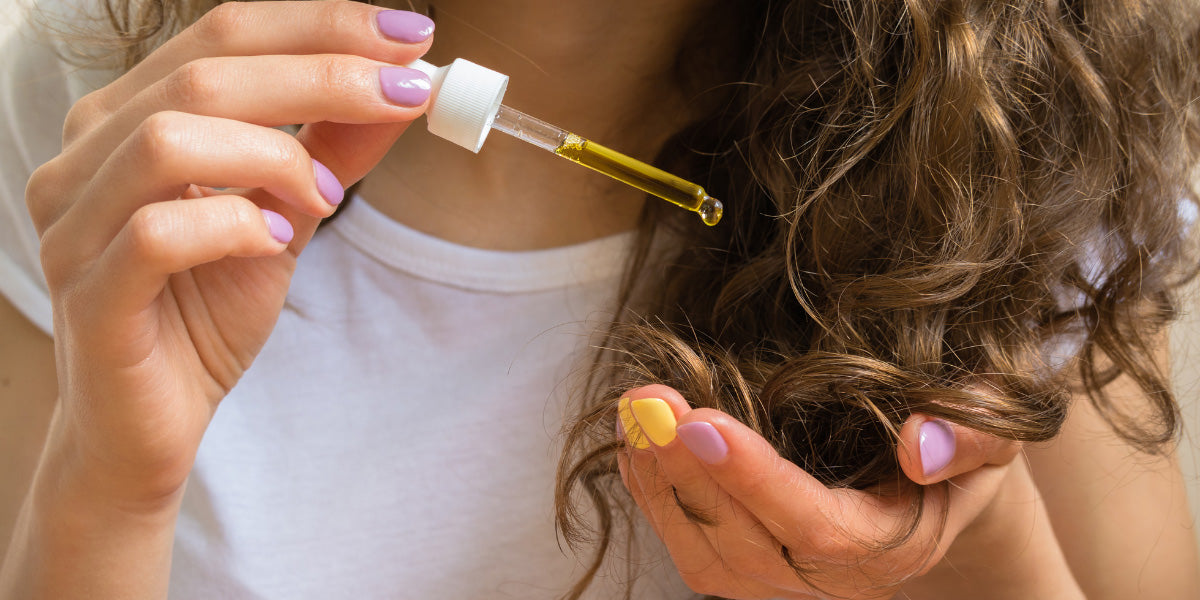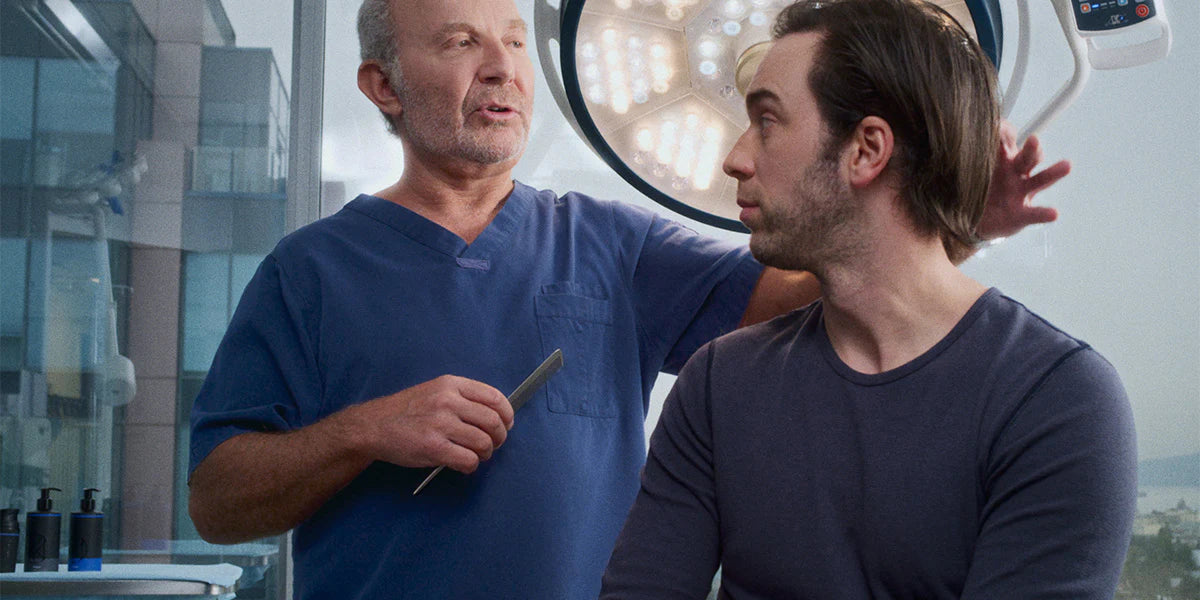Ketoconazole is the active ingredient in some anti-dandruff shampoos and it has a permanent place in many people’s showers—and for a good reason. It works to help manage one of the most common scalp complaints: dry, excessively flakey skin. If you’re using ketoconazole, you may have heard rumors that it could also be the answer to hair loss.
You’re probably wondering if there’s any truth to this? Let’s explore the facts surrounding ketoconazole shampoo for hair loss and examine how it differs from other hair care products like DHT blocking shampoo, that might be an option for people experiencing thinning hair.
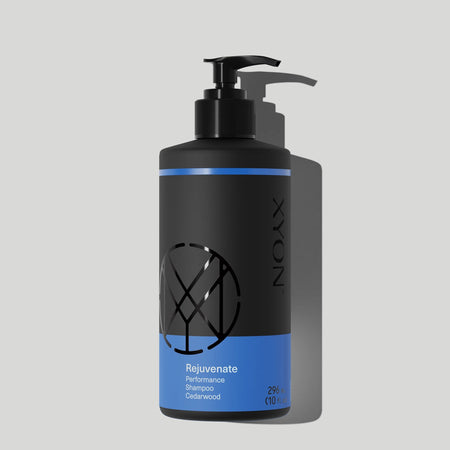
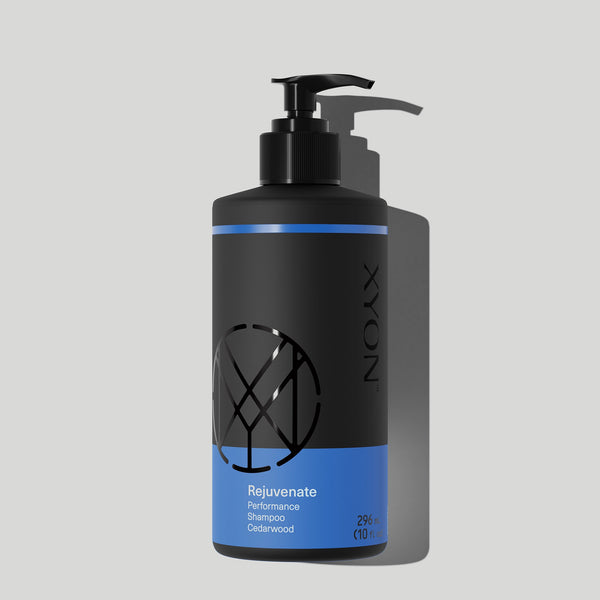
XYON DHT Blocking Shampoo
Our DHT blocking shampoo uses natural ingredients to help stop your hair loss. It's developed by doctors to clean your hair & scalp for healthier hair
What is ketoconazole shampoo?
Ketoconazole is an antifungal medication used to treat a variety of skin infections caused by certain types of fungus, such as tinea versicolor and dandruff. For the latter, ketoconazole is formulated into a shampoo which is then applied directly to the scalp to help soothe itchy and flaking skin because it has strong anti-fungal and anti-inflammatory properties. Nizoral™ is a popular brand name for 2% ketoconazole shampoo, which is available over the counter.
Dandruff is associated with scalp inflammation and an overgrowth of a fungus, known as Maleassezia (Kim, 2009). Ketoconazole shampoo works against this fungus by blocking the production of a compound called ergosterol, which is a key part of the fungus’s cell structure. It may be a useful substance for treating dandruff in those suffering from skin conditions. In the case of seborrheic dermatitis, a common skin condition which is often accompanied by dandruff, 2% ketoconazole shampoo has been proven to be highly effective at clearing dandruff and irritation and preventing relapse of the condition when used once weekly (Peter & Barthauer, 1995).
Does ketoconazole shampoo treat hair loss?
Ketoconazole is an effective antifungal, but does it have any other benefits when it comes to hair loss? Can ketoconazole replace other treatments for pattern hair loss?
First, let's briefly touch upon what causes hair loss. Androgenetic alopecia (also known as pattern baldness) is the most common type of hair loss and it’s primarily caused by a hormone called dihydrotestosterone (DHT). High levels of DHT at the scalp can cause hair follicles to shrink in a process called miniaturization and over time, this can cause them to produce weaker strands of hair that break more easily. Eventually, the hair follicles can be rendered unable to produce any hair, leading to areas or spots of permanent balding.
There has been some preliminary research which has demonstrated ketoconazole shampoo to be useful for hair loss. For example, a study directly comparing topical minoxidil (the active ingredient in Rogaine®, which is an over-the-counter hair loss medication) to ketoconazole shampoo for treating hair loss, found that ketoconazole produced significant hair growth in mice within three weeks (Aldahimi et al, 2014). However, in direct comparison to minoxidil, ketoconazole produced less notable improvements in the mean diameter and number of hair follicles.
We asked Dr. Han for her expert opinion on whether it’s worth adding ketoconazole shampoo to your hair care routine if you struggle hair loss and here's what she had to say:
“Adding ketoconazole shampoo to your routine can be helpful for those suffering from dandruff and hair loss. Flaking and itching on the scalp is often associated with inflammation and this can impact your hair follicle and hinder its full potential for hair growth. As well as anti-fungal and anti-inflammatory properties, ketoconazole shampoo may help to support those suffering from pattern hair loss by reducing the effects of DHT at the scalp.”
However, it’s important to note that ketoconazole shampoo should not replace other hair loss medications and Dr. Han reiterated:
How do ketoconazole and DHT blockers work together?
Ketoconazole doesn’t appear to possess DHT-blocking properties and so it’s unlikely that it can directly target this common type of hair loss. However, there is some evidence that ketoconazole may be a helpful substance to use alongside your hair loss medication, such as finasteride or minoxidil to address other factors which may contribute to hair loss.
Some studies have suggested that fungal growth on the scalp could have a role in androgenetic alopecia, with findings that hair loss improvement was accompanied by a reduction in fungus on the scalp (Li, 2022). This research may support ketoconazole shampoo as an adjunctive therapy for pattern hair loss to help control fungal overgrowth, but further studies are needed to better understand this.
The anti-inflammatory properties of ketoconazole shampoo may also be useful for hair loss. Inflammation is believed to play an important role in the development of androgenetic alopecia (Peryavian et al, 2022), so it’s been suggested that using ketoconazole shampoo alongside proven hair loss medication could improve treatment outcomes (Perez, 2004). Interestingly, this study also hypothesized that ketoconazole may cause disruptions to the DHT pathway and that using it alongside a DHT-blocking medication could lead to a more complete prevention of DHT.
It’s important to note that there are clinically proven medications for hair loss which are likely to be more effective at treating hair loss than ketoconazole shampoo. Many of these are available through XYON, following a consultation with a doctor. Getting expert guidance and support can mean the difference between good and great hair regrowth results.
How are ketoconazole shampoos different from DHT blocking shampoo?
Essentially, they serve two different but potentially complementary purposes. DHT blocking shampoo aims to promote healthy hair growth and prevent hair loss, whilst ketoconazole shampoo primarily treats dandruff on the scalp caused by fungal overgrowth, with secondary anti-inflammatory benefits.
When it comes to which is more helpful for hair loss, it’s difficult to give an answer as there haven’t been any head-to-head trials between the two products. Dr. Han also commented that:
DHT-blocking shampoo contains ingredients like saw palmetto that have natural DHT blocking properties. In fact, XYON’s own Performance DHT Blocking Shampoo contains saw palmetto along with other key ingredients like rosemary oil and ginseng root that were chosen to promote and maintain the health of hair follicles and scalp skin. Rosemary oil has shown similar hair growth benefits to minoxidil after 6 months when directly compared in a study (Panahi et al,2015). Its’ ability to improve blood circulation to the scalp and potential anti-fungal properties (Ablean et al, 2021) make rosemary oil a great addition to your hair care routine.
The bottom-line is, you can choose to add either product to your haircare routine, but if you’re suffering from hair loss, you should consider a pharmaceutical option alongside your chosen shampoo. Dr. Han added:
Takeaway: using shampoo ketoconazole for hair loss
Ketoconazole shampoo is an effective treatment for dandruff but when it comes to hair loss, there are better and more targeted treatment options out there. With ketoconazole or other supporting therapies, it’s important to consider the evidence for their efficacy. If you’re ever in doubt, talking to an expert like a hair loss specialist can be really helpful. Remember, you don’t have to go through your hair journey alone.
References List:
Abelan, U.S., Oliveria, A.C., Cacoci, E.S.P., Martins, T.E.A., Giacon, V.M., Velasco, M.V.R., Lima, C.R.R.C. (2021). Potential use of essential oils in cosmetic and dermatological hair products: A review. Journal of Cosmetic Dermatology, 21(4), 1407-1418. https://doi.org/10.1111/jocd.14286
Aldihimi, M.A., Hadi, N.R., Ghafil, F.A. (2014). Promotive effect of topical ketoconazole, minoxidil and minoxidil with tretinoin on hair growth in male mice. ISRN Pharmacology. https://doi.org/10.1155%2F2014%2F575423
Evron, E., Juhasz, M., Babadjouni, A., Mesinkovska, N.A. (2020). Natural hair supplement: Friend or foe? Saw palmetto, a systematic review in alopecia. Skin Appendage Disorders, 6(6), 329-337. https://doi.org/10.1159%2F000509905
Kim, G.K. (2009). Seborrheic dermatitis and Malassezia species. Journal of Clinical and Aesthetic Dermatology, 2(11), 14-17.
Li, J., Shi, L., Shi, D. (2022). P226 Malassezia hyphae play possible roles in the pathogenesis of androgenetic alopecia. Medical Mycology, 60(1). https://doi.org/10.1093%2Fmmy%2Fmyac072.P226
Panahi, Y., Taghizadeh, M., Marzony, T.E., Sahebkar, A. (2015). Rosemary oil vs minoxidil 2% for the treatment of androgenetic alopecia: a randomized comparative trial. Skinmed, 13(1), 15-21. Rosemary oil vs minoxidil 2% for the treatment of androgenetic alopecia: a randomized comparative trial - PubMed (nih.gov)
Peyravian, N., Deo, S., Dauner, S., Jimenez, J.J. (2020). The inflammatory aspect of male and female pattern hair loss. Journal of Inflammation Research, 13, 879-881. https://doi.org/10.2147%2FJIR.S275785
Perez, B.S.H. (2004). Ketocazole as an adjunct to finasteride in the treatment of androgenetic alopecia in men. Medical Hypotheses, 62(1), 112-115.
Peter, R.U., Barthauer, U.R. (1995). Successful treatment and prophylaxis of scalp seborrheic dermatitis and dandruff with 2% ketoconazole shampoo: results of a multicenter, double-blind, placebo-controlled trial. British Journal of Dermatology, 132(3), 441-445. https://doi.org/10.1111/j.1365-2133.1995.tb08680.x

